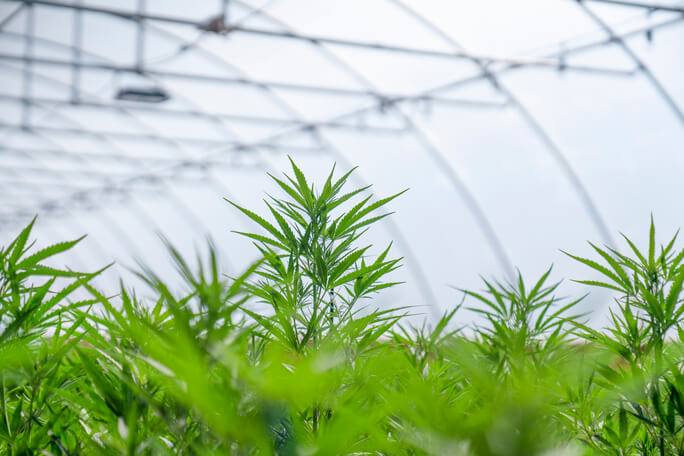No products in the cart.

The way your favorite hemp CBD products are made matters. Thanks to increased consumer demand, butane and propane extraction methods are being replaced by ethanol and CO2 CBD extraction. Join us as we explore the issues surrounding supercritical CO2 and CBD ethanol extraction and how you can make a difference.
Traditional CBD Extraction Methods
Since 1999, butane and propane (forms of liquified petroleum gas) have been used to create cannabis extracts efficiently, effectively, and often at a minimal cost. To make the extracts, butane is applied to cannabis material in a column and separated afterward through a process of evaporation.
While it’s generally possible to remove most of the solvent from the hemp extract afterward, there are still a few remaining concerns that have propelled a desire for change:
1. Butane Is Highly Flammable
The first and most pressing problem and the motivation behind the development of CO2 CBD extraction—is that butane tends to explode. In fact, this substance will explode at a concentration of only 1.86% of the total volume of ambient air. The problem of life-threatening explosions is the greatest in small home extraction operations where butane is sprayed onto hemp material in an open system. However, closed systems are not completely immune. A technical error or failure in the machinery could still blow up a 1,450 square foot home.
2. Residual Solvents Affect the Taste
For hemp users in the late 1990s, a butane taste to hemp extracts almost came to be expected due to the DIY nature of the industry. Today, that taste could be reappearing in commercial preparations as well—particularly in Colorado where the threshold of residual solvent was raised six-fold from 800ppm to 5,000ppm in 2017 and subsequently lowered to 1,000ppm in 2018.
While some customers don’t mind the taste of liquid petroleum in their CBD oils, others find it off-putting, unnatural, and certainly not ideal when a pure flavor can be easily achieved with CO2 CBD extraction.
3. Solvents Have Been Linked to Health Problems
The actual toxicity of solvents like butane has been a little hard to pin down. A study referred to by Mike Van Dyke, chief of the Environmental Epidemiology, Occupational Health, and Toxicology Branch at the Colorado Department of Public Health and Environment (CDPHE), set values for residual solvents that were far higher than the thresholds that had previously been in place for extracts in Washington and Berkeley, California.
However, exposure to butane, in general, has been linked with problems with the central nervous system and heart and may cause brain and organ damage in an unborn fetus. This is in contrast to CO2 CBD extraction, which comes without any health risks. Even if extracts contain only trace amounts of solvents, avoiding exposure entirely is by far the best approach to take.
CBD Ethanol Extraction
Before cannabis was banned in 1937, ethanol-based cannabis extracts were fairly common—using alcohol to draw out the plant’s compounds much in the way that alcohol-based herbal tinctures are made today. In more recent times, ethanol has been revived as a solvent alternative for drawing out cannabinoids like cannabidiol (CBD) along with, or instead of, CO2 CBD extraction.
In contrast to the ethanol that would have been used in the early days, modern CBD ethanol extraction is usually performed with corn that is genetically engineered to withstand insects and herbicides. When you consume extracts made with GMO corn, you may be ingesting higher amounts of herbicides than you realize and contributing to environmental damage.
Why GMO Ethanol Might Not Be Ideal
Genetically modified organisms (GMOs) like GMO corn have been the subject of much debate. On the one hand, agricultural scientists see genetic engineering as a way to strengthen plants against climate change and grow more plants in a smaller space. On the other hand, the health and environmental effects of GMOs over the long term are not entirely known.
One thing that we know for sure is that pesticide-resistant GMO crops caused the use of glyphosate (Roundup) to rise by 11% between 1996 and 2011. This is an environmental as well as a health disaster that’s only growing worse over time.
Beyond even the question of health, GMOs pose ethical issues as far as food sovereignty and seed saving are concerned. Patented seeds in the hands of only a few companies limit the possibility for small farmers to thrive, and destroy the natural diversity of crops.
At Green Gorilla™, we go to great lengths to source non-GMO ethanol for our ethanol and CO2 CBD extraction process, because we believe it’s the best for our customers and the environment. Our hemp is not genetically modified, so we think the extraction process shouldn’t be either. Organic hemp plus non-GMO ethanol ensures a product that doesn’t harm the earth.
CO2 CBD Extraction: The Revolution in Hemp
Along with CBD ethanol extraction, many producers today use supercritical carbon dioxide to create clean CBD extracts. In this method, supercritical carbon dioxide is passed through the plant material at a temperature of 31°C (88°F) and at 74 bar pressure to separate the desired compounds from the buds. By modifying the temperature and pressure, it’s possible to isolate specific compounds. This makes CO2 CBD extraction an excellent option for commercial producers.
Compared to the petroleum-based solvents that we’ve discussed, CO2 CBD extraction is very safe. Rather than needing to be separated at the end, supercritical CO2 simply evaporates off the final hemp CBD oil if any is left hanging around at the end. It’s also nonflammable, chemically stable, and doesn’t react with other substances in the air, so there’s no chance of a deadly explosion.
How You Can Support Clean CBD
As a consumer of cannabidiol (CBD) products, your choices have a far-reaching impact. By choosing CBD products that are made from organic hemp and processed with non-GMO ethanol and CO2 CBD extraction techniques, you can:
- Keep pesticides out of our soil, waterways, air, and food chain
- Help to draw down carbon from the air
- Invest in a healthier soil web
- Support the livelihoods of small-to-medium producers
- Keep food sovereignty in a wider range of hands
- Protect the safety of cannabis extraction technicians
- Protect your health and the health of your loved ones
If you’re ready to switch to a cleaner and greener CBD company, check out Green Gorilla™. We were the first brand in the United States to offer certified organic CBD and we are continuing to innovate with wholesome organic ingredients, ethanol and CO2 CBD extraction, and regenerative hemp farming techniques.
Explore our complete range of broad spectrum, full spectrum, and pure CBD products online and enjoy free shipping with orders $75 and above.

